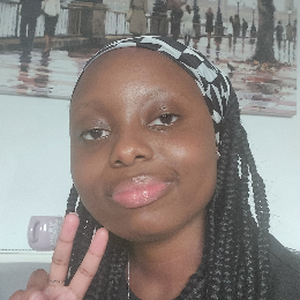Decolonising the curriculum has gone from being a resistance movement to one of those buzzwords that get thrown around many universities.
Some have claimed that it is an effort to erase parts of the university curriculum. This false panic has been exemplified in a recent non-story about Stirling University supposedly getting rid of Jane Austen in favour of Toni Morrison. It’s simply not true – that module changes focus every year with a new author selected annually. Choosing Toni Morrison does not erase Jane Austen.
Much of the time, decolonising the curriculum means expanding it to consider a wider view of voices, perspectives and thinkers within that subject. As a philosophy student I would not just be studying traditional philosophers, such as Hume and Descartes – but decolonisation means that have also studied Wilhelm Amo, a black African German philosopher who was not previously granted the respect afforded to philosophers previously mentioned. It is about informing and telling the whole story about a subject – not erasing it.
It is not a surprise that a British press that has been inventing “political correctness” stories since the eighties would be resistant. But as well as this external pressure to resist diversity efforts, I fear a quiet and latent resistance on campus too.
Taking decol seriously
Some students question how seriously their departments take the agenda.
Amara, a third-year Psychology student I spoke to, was pleased that a “decolonising psychology” workshop was organised by a student and the People of Colour society. But when it came to her department:
…there is no coherent effort put into it [decolonising the curriculum].”
Another, labelling a formal commitment as “performative”, argued that by not actively having difficult discussions and relying on students, official commitments sounded hollow.
Another thought of decolonisation as a kind of secret:
…there are a lot of individuals within the department who want to decolonise, but there is no coherent effort.”
Tara, a third-year theology student said she doubted whether her university department had a commitment at all:
We have a world-class theology department with regards to Biblical Studies, Christian Theology, Christian History, and Philosophical Theology. But from the list of supervisors and their research interests I was given last year, there is only one reference to Buddhism or Hinduism. I do think if you want to study these religions then this is not really the place to be… I think a lot of the time some lecturers assume everyone’s Christian.”
History seems to be making progress, according to a second-year student Stephanie:
…some active and non-performative efforts are being made in my department or have already occurred. For instance, I have seen modules emerge that platform the histories of marginalised groups such as the greater availability to study Black History across the year groups compared to last year and the inclusion of Native American perspectives in a module that I took on nineteenth-century America last year.”
As for the diversity of the staff, she added this insight:
…to imply diversity and inclusion within a module, lecture, or workshop without the actual existence of the diversity of individuals and narratives within them is not only performative but entirely disingenuous. Decolonisation needs to both strive to uncover history and platform BIPOC historians but also acknowledge the losses and deliberate omittances in the knowledge that colonisation has facilitated to manufacture “digestible” or “tolerable” narratives for its once predominant audience of upper-class, conservative scholars.”
Diversity is needed not only in the content but in the staff. Statistics show that 11 per cent or 2,425 out of 22,855 professors in the UK are from a black or ethnic minority background. Without visible results, students will question how much effort universities put in to giving opportunities to those from marginalised backgrounds, and assume instead that decolonisation is more PR than policy.
Playing games
The politics could be the problem. Negativity and deliberate misunderstanding of decolonisation has been co-opted by right-wing commentators and government ministers. The minister for further and higher education, Michelle Donlean, has spoken extensively against decolonising the curriculum – comparing it to “Soviet-era censorship” that is about “censoring history”.
The big danger for higher education is that when you mix ministerial game-playing, clickbait press, performative policy on curriculum that is left to individual choice and staff diversity drives that don’t seem result in change, it leaves students believing they are being lied to.
The reality is that we now need institutional change – we need to move beyond simply telling professors and tutors that it is their choice whether they tell the full story of their subject. Some may not be experts in non-white or western figures and topics, some simply do not want to, and some might want to be seen to side with right-wing politicians or the the press.
But triangulating won’t help. For universities to really be the centres of free speech they claim to be, they need to require that academics put a coherent effort into expanding student knowledge and experience. No university claiming to be a world-class educator should tolerate only teaching half the textbook.
Individual staff and student groups can only do so much to enhance the curriculum. It is now up to universities to use the independence from the state and the press they have, and put a more coherent effort into widening the university curriculum for the benefit of all students and wider society.



















No – just no. What you are talking about is the end of academic freedom – it would require a rewrite of the law, contracts and norms. It also assumes that we have “settled questions” and “truth”.
Now you might say “well it’s in a good cause” and it is – but once you set the principle that this can happen then you don’t control how that is used. It could be used to say that the end of Roe vs Wade can be seen as the return of state freedom and therefore a good thing. The same when they continue to remove safe sex marriage rights, access to conception and so on.
“might want to be seen to side with right-wing politicians”
What if they do? Many academics are keen to seen to be siding with left wing politicians. I am politically a card carrying member of the Labour party but the underlining idea here is dangerous and feeds into the idea that there is no place in the University for diverse view points.
You might as nationalise the Universities at that point and employ teachers not academics.